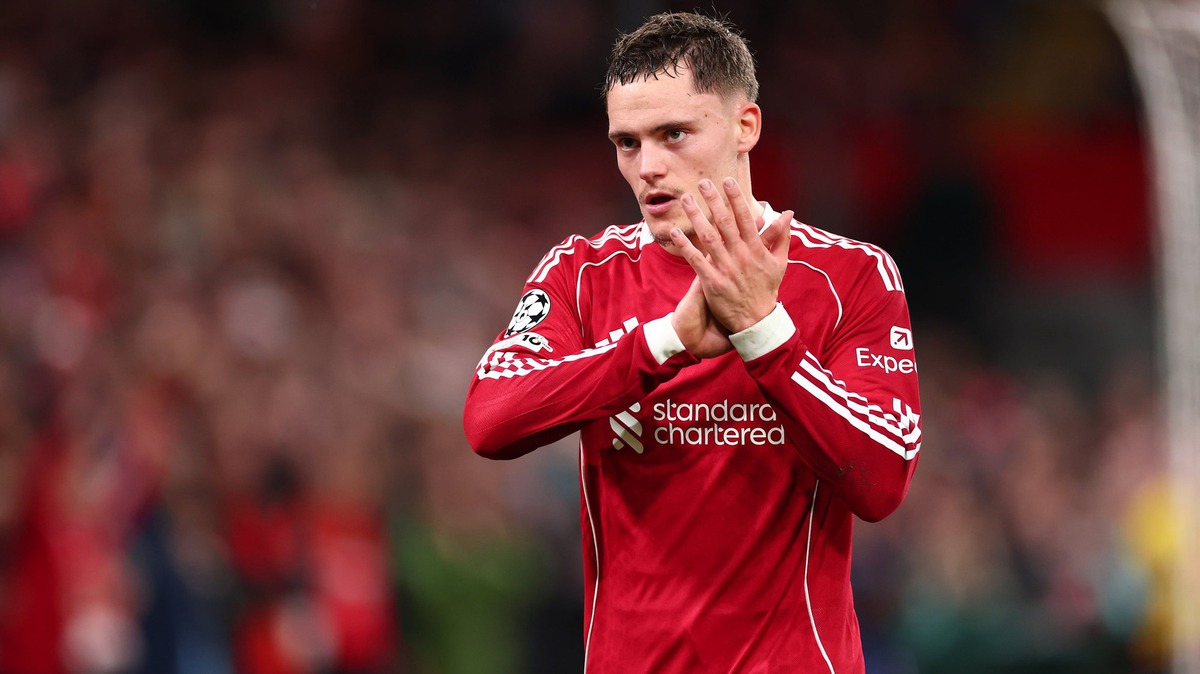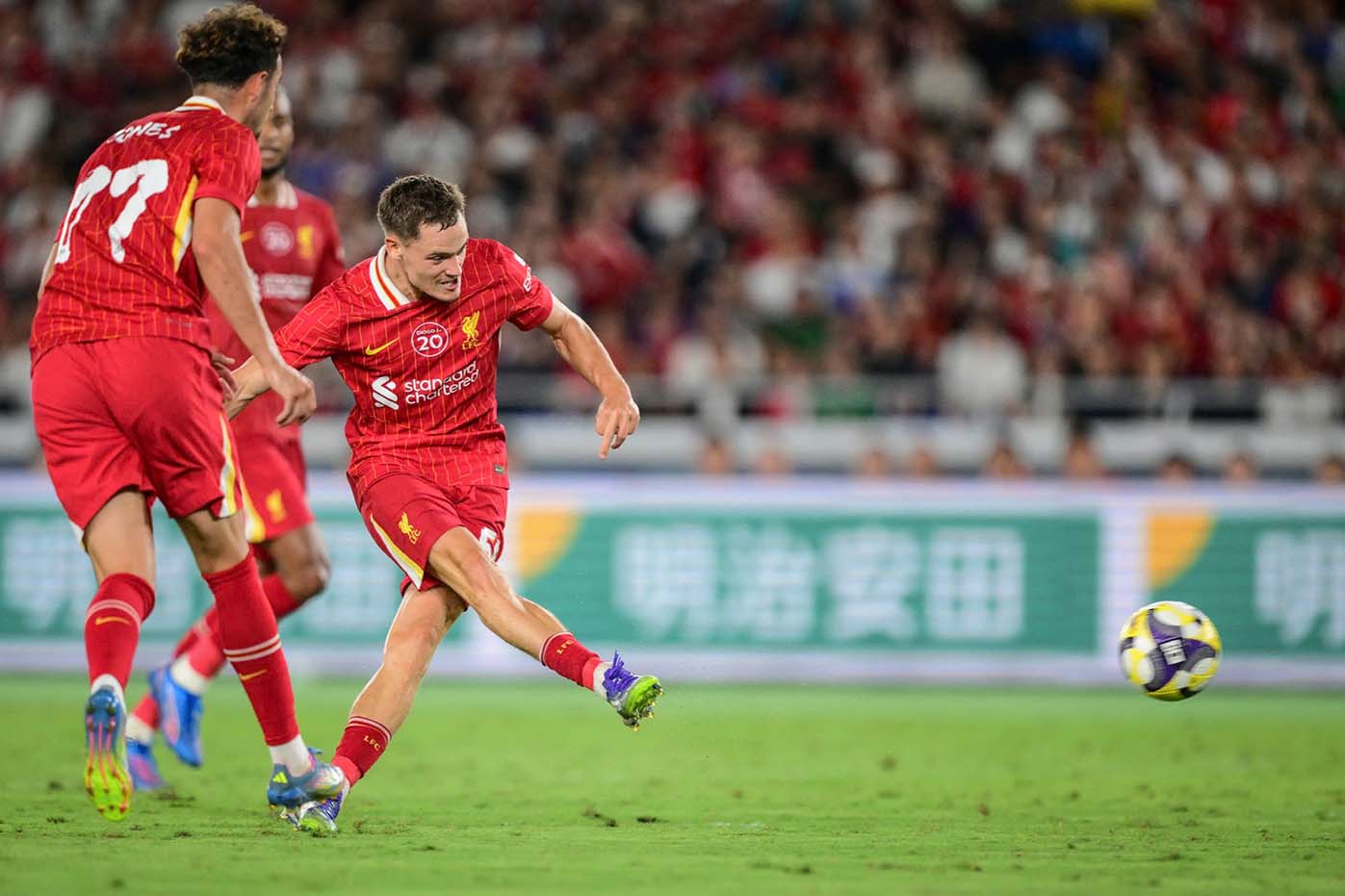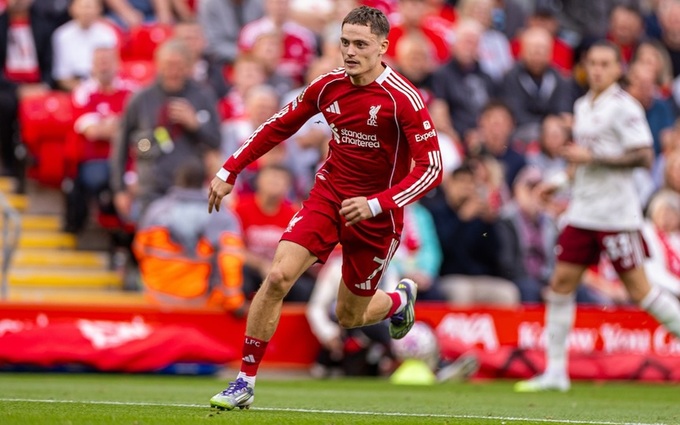
Florian Wirtz arrived at Anfield as one of Europe’s brightest young stars — a £116 million investment meant to usher Liverpool into a new era. Yet just months into his Premier League adventure, the 22-year-old German finds himself struggling in ways few expected.
After 11 matches in England’s top flight, Wirtz has yet to record a single goal or assist. For a player once hailed as the future of German football, the numbers paint a harsh picture. But the reasons behind his slow start are complex, layered, and increasingly concerning for Liverpool.

Criticism surged after Liverpool’s 0–3 defeat to Manchester City, when Gary Neville bluntly declared on Sky Sports: “Wirtz looks like a boy among men. That can’t happen in the Premier League.”
Neville wasn’t alone. Micah Richards described Wirtz as “small, not powerful enough,” while Joe Cole remarked that he seemed “too light to survive the intensity” of English football. And harsh as the comments sound, they point toward a real problem: physicality.
The Premier League’s demanding pace and relentless duels have exposed Wirtz’s limitations. At Leverkusen, he had time, space, and fewer high-impact challenges. In England, he is winning just 35% of ground duels and a mere 11% of aerial ones — both significantly lower than his Bundesliga averages. His meek tussle with Matheus Nunes against Manchester City highlighted that gap brutally. As Neville concluded, “At £120 million, you can’t be bullied like that.”

History shows that physically smaller playmakers — like David Silva and Luka Modric — also struggled at first. But they adapted quickly, drawing on mental toughness and tactical flexibility. Wirtz, for now, seems caught in between worlds.
Equally problematic is his role within Arne Slot’s evolving Liverpool. At Leverkusen, Wirtz was the heartbeat of the team: averaging 80 touches per match, orchestrating transitions, and dictating tempo. At Liverpool, that figure has dropped to 58 touches, with attacking-third touches falling by nearly half.
Slot initially deployed him as a No.10 in a 4-2-3-1, but that left Liverpool’s midfield too vulnerable. The German was then pushed to the left flank — a role that limits his strengths. At Leverkusen he thrived cutting in from the left, but Liverpool’s structure offers less space, fewer combinations, and more defensive burden.

The result: Wirtz has created 16 big chances this season, yet none have been converted. The dysfunction isn’t just his — it’s systemic. Liverpool, undergoing a £424 million rebuild, lack cohesion and clarity. Too many moving parts, too many stylistic clashes, and no stable foundation for a creative player to flourish.
Slot’s attempt to shift Liverpool from Klopp’s high-pressing identity to a more possession-oriented system has deepened the instability. And with attacking stars like Salah, Isak, and Ekitike all demanding the ball in different ways, Wirtz often appears like an accessory rather than a centerpiece.
Florian Wirtz is not a failed talent. He is a gifted young playmaker dropped into a team in transition, asked to carry creative weight without the structure that once allowed him to shine. Liverpool expected him to be the solution. Instead, he has become a symbol of the club’s growing pains — a brilliant player wandering inside a system still searching for itself.
Only time will tell whether Wirtz adapts, Liverpool stabilizes, or the partnership simply wasn’t meant to be.
